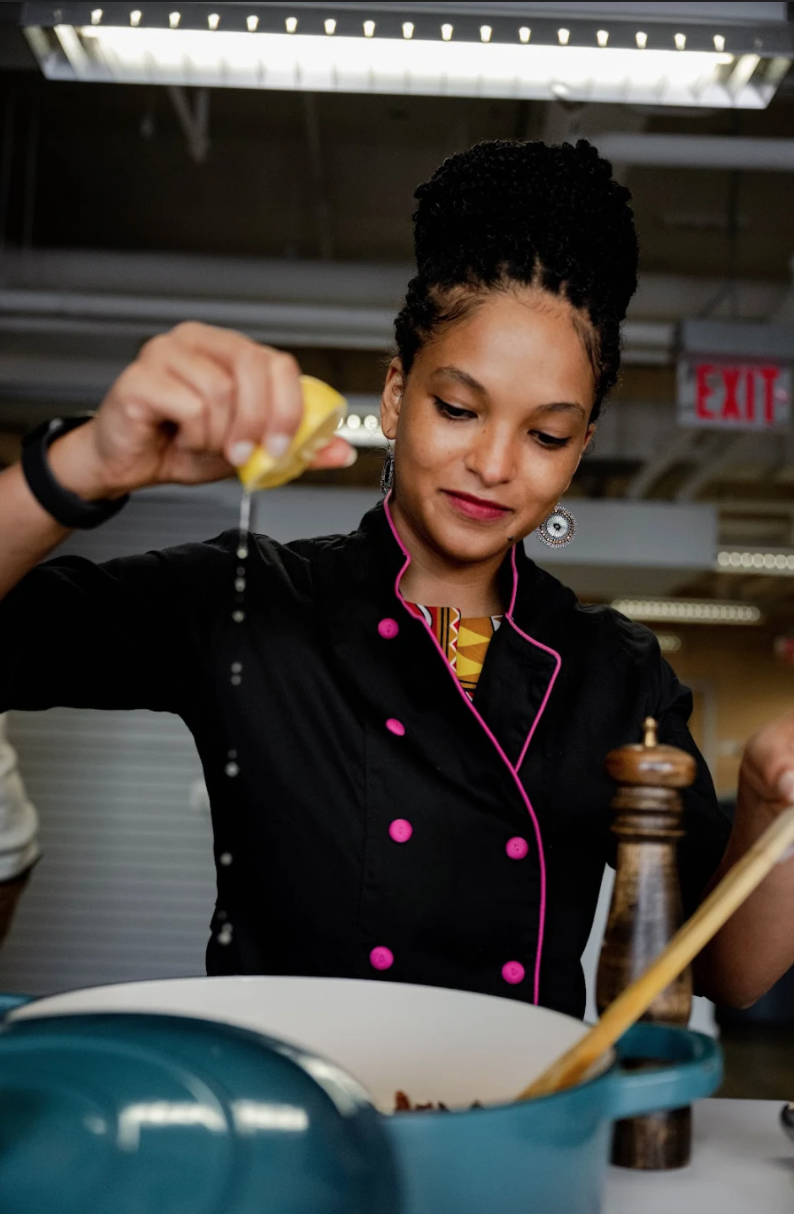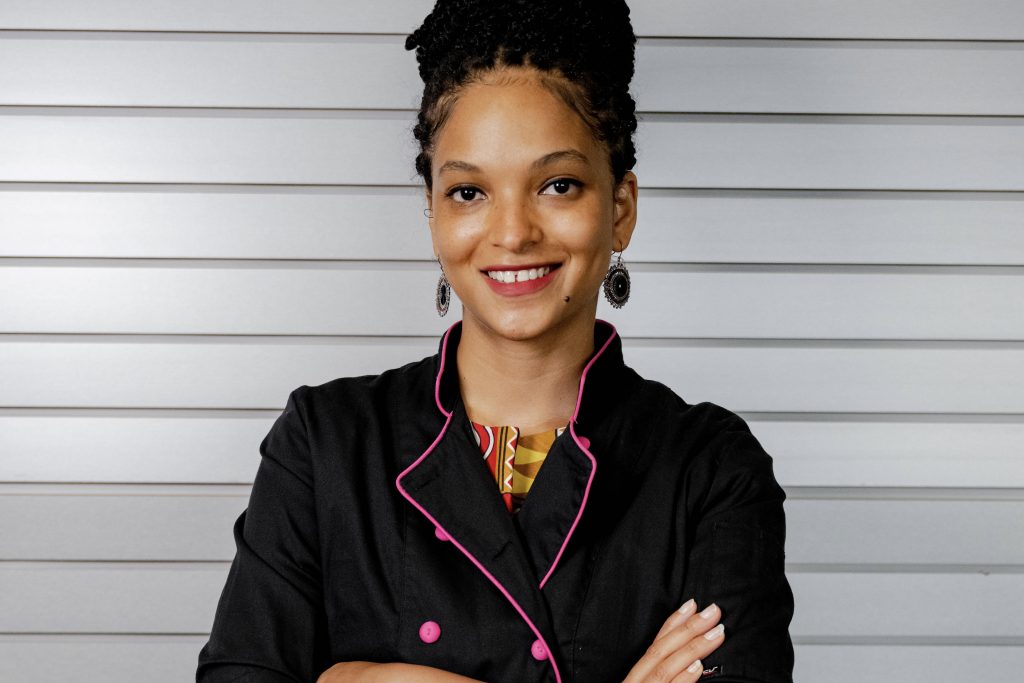Ameneh Marhaba lost her job around the same time she began serving the community through her pop-up, Kitchen Ramaj, which has since rebranded to Little Liberia. “At the time, I couldn’t work anywhere legally, so I was trying to find something cash-based,” says Ameneh. “I’ve always loved cooking and wanted to start a food truck. But a truck is expensive. So, I started a pop-up that has lower start-up costs.”
“Restaurants and bars downtown hosted me, and I was able to cook for the community and get cash to pay my bills. It continued growing from there,” says Ameneh. “At the time, we were paying restaurants half of what we were making to pop-up in their space. I realized that particular business model wasn’t covering the bills anymore. If I wanted to make this a career, I needed to make some changes.”

“The thing about pop-ups is that they’re unpredictable,” explains Ameneh. “You never know how many people are going to show up, and there’s no pre-selling of tickets to know how many guests to prep for. It’s a numbers game that sometimes works in your favor, but on the prep days where you were anticipating high volume, and it ends up being a slower pop-up – that’s when you lose money and product.”
When Ameneh stepped back from her pop-up, she took some time to create a bigger picture, “or as much as one can do in the food industry,” she says. “I decided to restructure what I was doing. The biggest issue I was having, aside from the unpredictability of money, was how the brand had to change and adapt within other spaces. I was trying to fit our brand and model into someone else’s restaurant, and that wasn’t what I wanted in the end. I wanted to bring Liberia to the community in flavor and culture through an entire experience.”
“My hope for the future is a brick and mortar that allows guests to come through the front doors, have a plate of food, and learn about Liberia without realizing it. There are many tribes in Liberia, and in my space, I envision having a tribal wall listing where each specific food dish comes from. As guests look at the menu while talking or waiting for their food, I hope they’re able to learn from our four walls and learn where their food came from and a bit about Liberia.”
“I’ve had the opportunity to learn so much through our pop-ups,” says Ameneh. “And the restaurant industry has welcomed us in so many ways, which has been such a treat. We’re hosting more intimate and ticketed dinners as we shift to finding a brick-and-mortar. We hosted one at Baobab Fare and were able to announce the rebrand. We received such positive feedback from the food and the new name! Originally, I chose Kitchen Ramarj because it combined initials from my mom and siblings’ names. Little Liberia is more culture-centered and represents the entire message of what I want to share with Detroit.”

“I can’t wait until the day I have my restaurant,” reminisces Ameneh. “It will be a space to share our culture with people through food. A safe space for everyone. It’s always been my dream to have my own space, cook, and feed people. And I’m so close!”
Ameneh Marhaba is the owner of Little Liberia, previously Kitchen Ramarj. Her next pop-up is taking place at Brooklyn Street Local and tickets are available!

